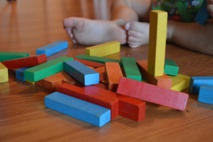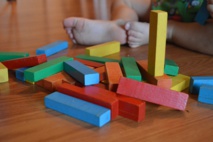
A research from the Concordia University (Montreal, Canada) reveals a new benefit of being bilingual in the problem-solving skills of little children.
The results of the study, informs Tendencias 21 through a press note of the University, show that bilinguals are better than monolinguals at a certain type of mental control, and that those children with more practice in switching between languages have even greater skills.
The researchers assessed the vocabulary of 39 bilingual children and 43 monolinguals when they were aged 24 months, and then again at 31 months. During the second assessment, the researchers made the young participants to perform a series of tasks to test their cognitive flexibility and memory skills.
The conflict inhibition refers to the mental process of ignoring a well learned rule to which they would normally pay attention. To assess children’s skills in this area, the researchers administered two tests:
1. Reverse categorization: participants were told to put a set of blocks into a little bucket, and big blocks into a big bucket. Then the instructions changed: the big blocks in the little bucket, and the little blocks in the big bucket.
2. Shape conflict: participants were shown pictures of fruits of different size, and asked to name them. Then they were shown a new series of pictures, with a small fruit embedded inside a large one. Children were asked to point the little fruit.
It wasn’t surprising to the researchers that bilingual children performed significantly better this inhibition tasks than did their monolingual counterparts. In conflict inhibition, the researchers explain, the child have to ignore certain information. The size of the block relative to the bucket or the fact that one fruit is inside another reflect that the experience of having to switch between languages: using a second language although the word from the second language might be more easily accessible.
The unique characteristic of this study was the finding that the more the toddlers switch between languages, the more it beneficiated it. Within the bilingual group of children, those who know a higher number of “doublets” –pairs of words in both languages, such as dog/ chien (French) – performed even better on the conflict inhibition tasks.
Scientists from the San Diego State University (USA) and from the Geneva University (Switzerland) also participated in the study.
The results of the study, informs Tendencias 21 through a press note of the University, show that bilinguals are better than monolinguals at a certain type of mental control, and that those children with more practice in switching between languages have even greater skills.
The researchers assessed the vocabulary of 39 bilingual children and 43 monolinguals when they were aged 24 months, and then again at 31 months. During the second assessment, the researchers made the young participants to perform a series of tasks to test their cognitive flexibility and memory skills.
The conflict inhibition refers to the mental process of ignoring a well learned rule to which they would normally pay attention. To assess children’s skills in this area, the researchers administered two tests:
1. Reverse categorization: participants were told to put a set of blocks into a little bucket, and big blocks into a big bucket. Then the instructions changed: the big blocks in the little bucket, and the little blocks in the big bucket.
2. Shape conflict: participants were shown pictures of fruits of different size, and asked to name them. Then they were shown a new series of pictures, with a small fruit embedded inside a large one. Children were asked to point the little fruit.
It wasn’t surprising to the researchers that bilingual children performed significantly better this inhibition tasks than did their monolingual counterparts. In conflict inhibition, the researchers explain, the child have to ignore certain information. The size of the block relative to the bucket or the fact that one fruit is inside another reflect that the experience of having to switch between languages: using a second language although the word from the second language might be more easily accessible.
The unique characteristic of this study was the finding that the more the toddlers switch between languages, the more it beneficiated it. Within the bilingual group of children, those who know a higher number of “doublets” –pairs of words in both languages, such as dog/ chien (French) – performed even better on the conflict inhibition tasks.
Scientists from the San Diego State University (USA) and from the Geneva University (Switzerland) also participated in the study.


 English
English



